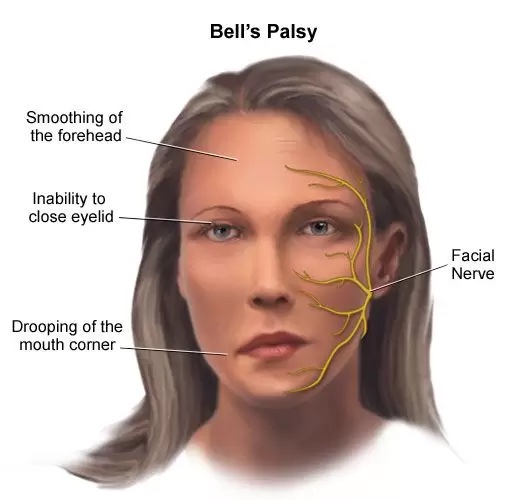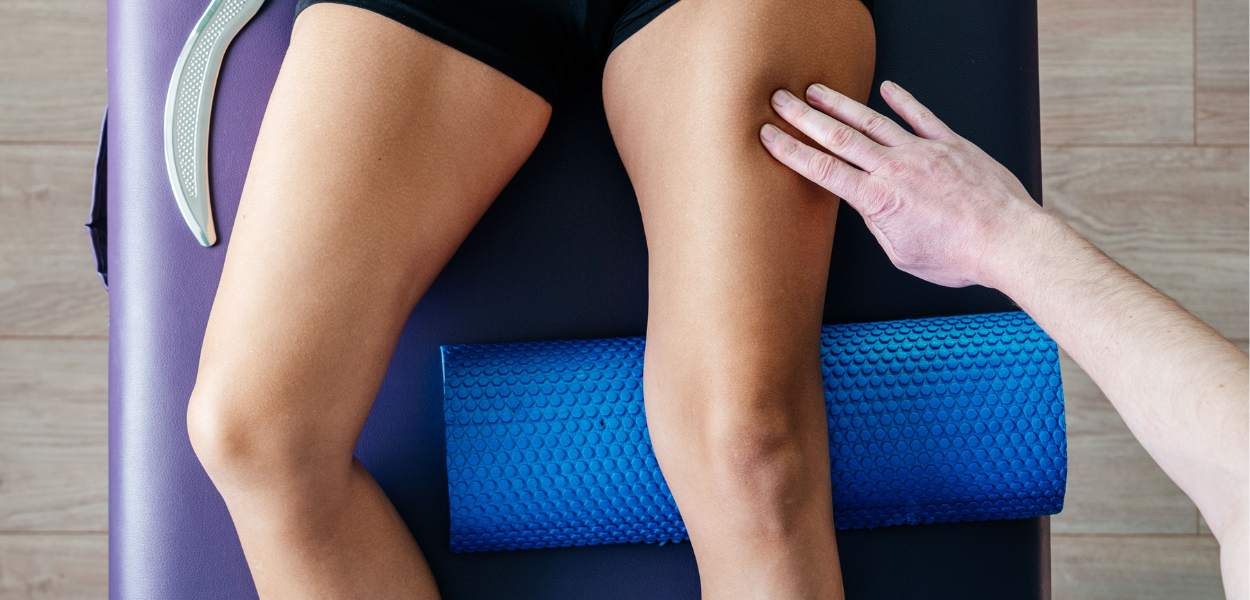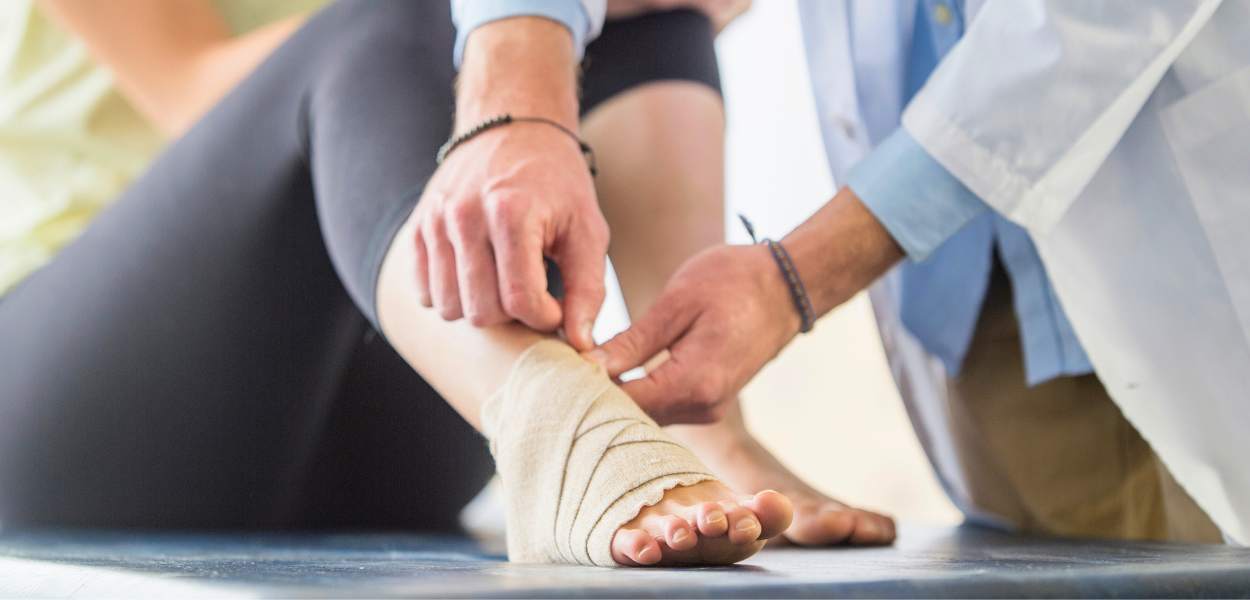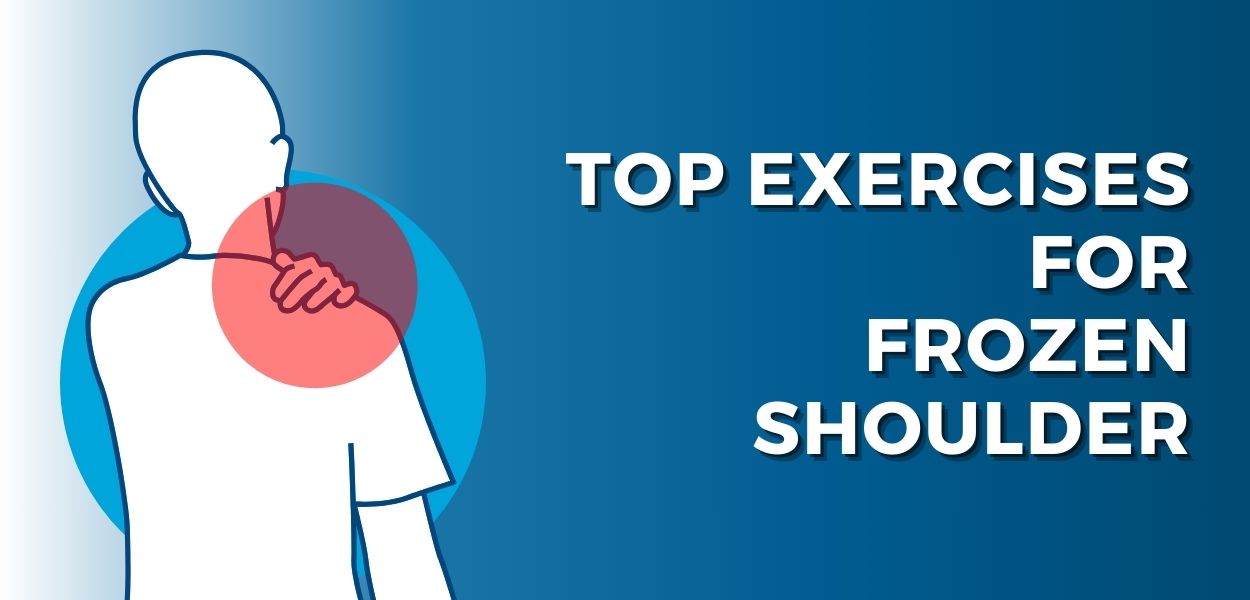Congrats for the new baby! But let’s also talk about managing your health

It’s wonderful to be a mother! You begin your journey experiencing all the joys of motherhood and a world of new beginnings.
Now that you have safely delivered your baby, it is time to take care of yourself and your post-natal health. In order to take good care of your loved ones, you must also take care of your own health and well-being. A happy healthy mother is essential for the development of a happy healthy child.
Alarmingly, according to the US National Institute of Health (NIH), over 40% of women suffer from back pain after delivering their child1 and 33% suffer from incontinence2. Many mothers also complain of a sagging tummy too.
Let’s explore the causes of these common complaints and how physiotherapy can help.

40% of women experience post-natal lower back pain
Post-natal back pain
The causes of post-natal back pain often include:
- Increased in body weight 20-40 lbs (9-18kg)
- Abdominal separation (diastasis rectus). The NIH estimates 30%-68% of mothers experience abdominal separation after child birth3
- Misaligned pelvis
- Weak core muscles: transverse abdominal and multifidus
- Poor posture
All of the above contribute to back pain and each of them can be rectified with the right physiotherapy treatment. Techniques such as myofascial massage, acupuncture and rehabilitative exercises can help reduce back pain. Tailor made programs with exercises and stretches can prevent back pain recurrence.
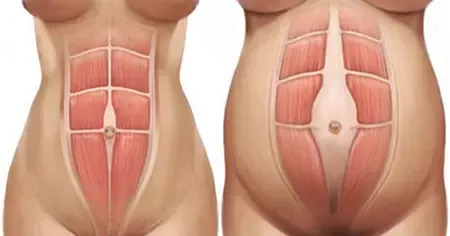
When pregnant, your abdominal muscles separate in order to accommodate the baby
Sagging Tummy
After childbirth, many women have loose sagging skin around their abdomen which is hard to deal with. Post-natal sagging tummy is caused by:
- Abdominal separation (diastasis rectus)
- Weak core muscles: transverse abdominal and multifidus
When you are pregnant, your abdominal muscles separate and expand to accommodate the baby. However, the muscles do not mend themselves after delivery. That’s why is important to attend post-natal Pilates with the physiotherapist in order to mend the abdominal separation.
Incontinence
Many women do not realise that incontinence can be treated but instead suffer in silence because it is such an embarrassing and taboo topic. Post-natal incontinence is caused by:
- Vaginal delivery
- Multiple vaginal deliveries
- Weak pelvic floor muscles
- Abdominal separation
To fix incontinence, biofeedback and electric stimulation are used as part of physiotherapy treatment. Additionally, post-natal Pilates with the reformer is encouraged to help mend the abdominal separation and thus lessening the intra-abdominal pressure on the weak pelvic floor. The Pilates reformer is a machine that helps provide external resistance, while keeping your body in the right position, as you perform exercises to strengthen your abdominal muscles.

Exercises with the Pilates Reformer can help to mend abdominal separation
Exercise to relieve back pain
A simple back exercise that may help relieve back pain is the back twist in the lying position.
- First, lie on your back and extend both arms sideways.
- Bend your left knee.
- Turn your back to the right while your neck turns towards your left.
- Hold the position for 10 seconds, and repeat 10 times for both sides.
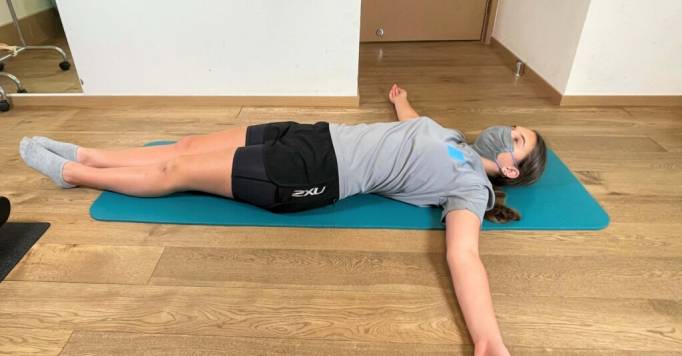
First, lie on your back and extend both arms sideways
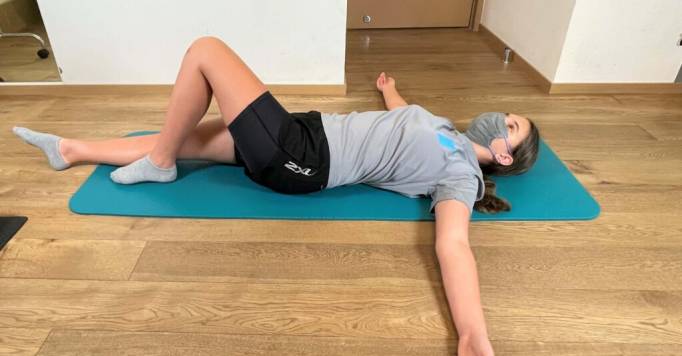
Bend your left knee
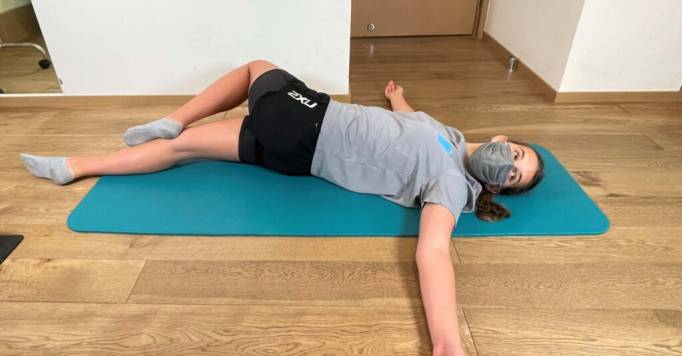
Turn your back to the right while your neck turns towards your left. Hold the position for 10 seconds, and repeat 10 times for both sides.
Written by
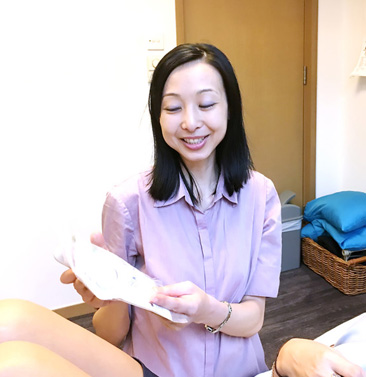
Maritza Lue
BSc Physiotherapy | Women’s Physiotherapist
Maritza has over 20 years’ experience in the field of Physiotherapy. She started to focus on Women’s Health physiotherapy when she noticed the lack of the treatment in Hong Kong and the great impact treatment has on a woman’s physical and emotional wellbeing. She is fluent in Spanish, English and Cantonese, which proved invaluable when she was part of the Equestrian Events of the 2008 Olympic Games.
Book a session with our friendly physiotherapists for an in depth assessment.

